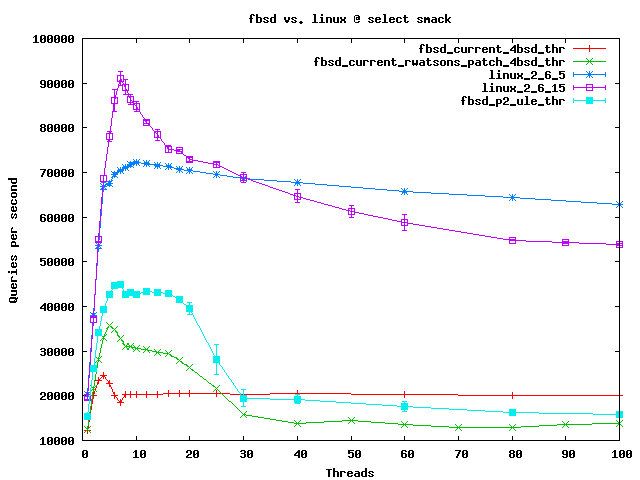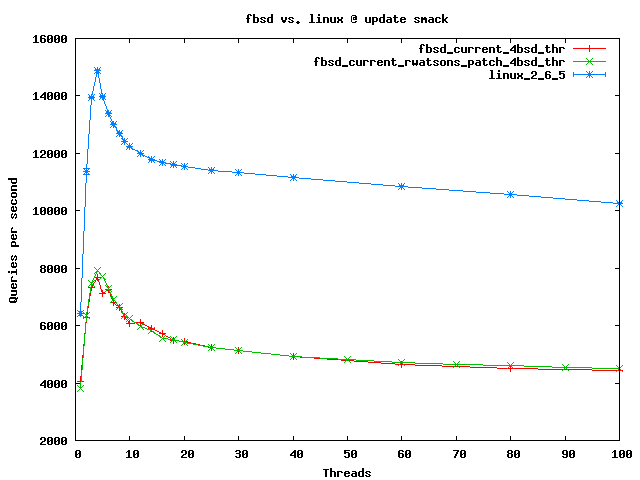These benchmarks are old, new ones can be found here
This page describes mysql supersmack benchmarks done for measuring effects of the locking patch that decreased contention
on unix domain socket locks. Since supersmack puts wery heavy strain on the domain socket it was a rather good test for
that purpose, but please don't think of those results as actual mysql performance measurements. The type of load supersmack
produces with default smackfiles is _very_ unrealistic, tables are small and always in ram, and with default mysql config you
will get 99.99% of the results from the query cache. So in general while I believe you can find some correlation between
the smackresults and actual mysql production performance the difference these patches make will certainly not be nearly
as obvious.
Environment:
Hardware:
- motherboard: Thunder K8QSD Pro
- hdd: scsi seagate cheetah 10K7
- ram: 8 * 3200 CL3 kingston ECC 1G
- cpu: 4 * opteron 870 (2Ghz dualcore)
mysql:
- ver: 4.1.18_2 from the ports
- table type: MyISAM
- config: my-huge.cnf with disabled bin-log and max-connections bumped to 400
Legend
- fbsd_current - freebsd current cvsuped @ 06 May 2006
- fbsd_current_rwatsons_patch - previous + patch from Robert Watson for
splitting up UNP lock around unix domain socket
- freebsd_p2 - previous + patch for splitting up locks around fileops + change t
o mysqld suggested by David Xu
- freebsd_p2_hz100 - same as previous but HZ set to 100
Results from dualcore amd64 are available here
Select smack
4BSD scheduler
With errorbars at 95% confidence
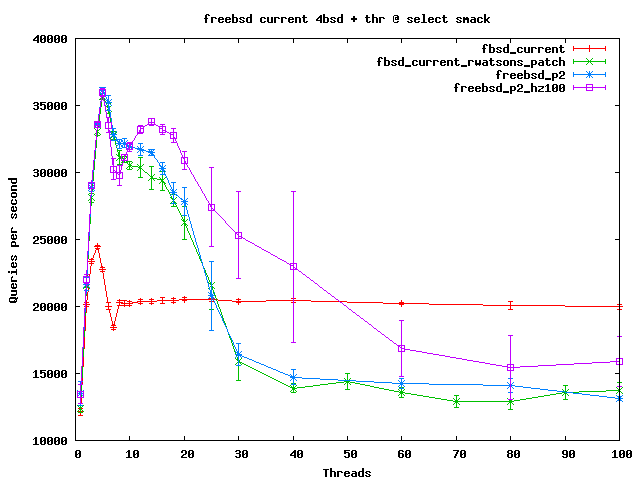
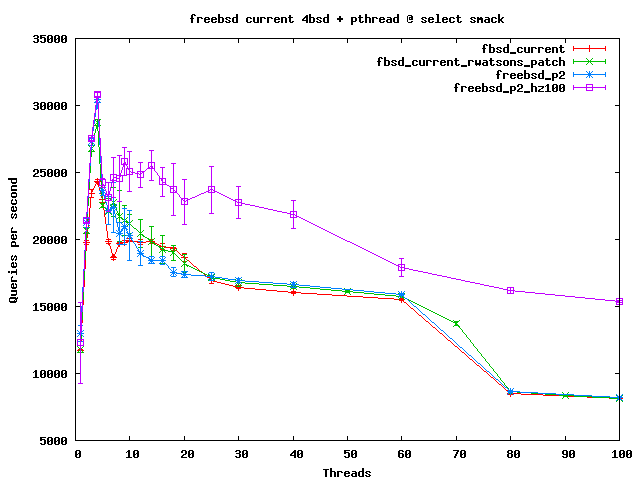
ULE scheduler
With errorbars at 95% confidence
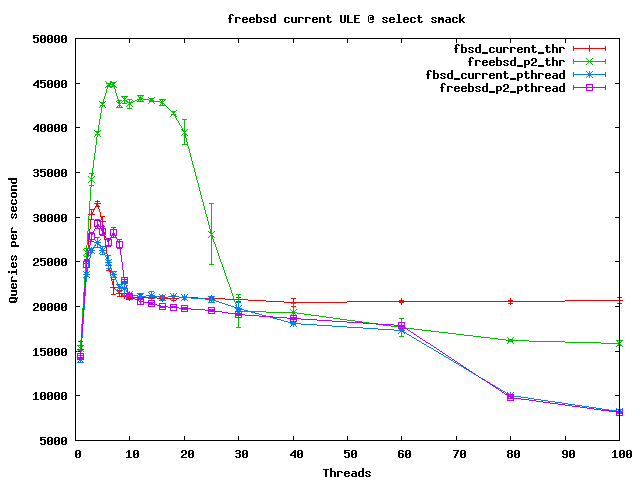
Update smack
4BSD scheduler
With errorbars at 95% confidence
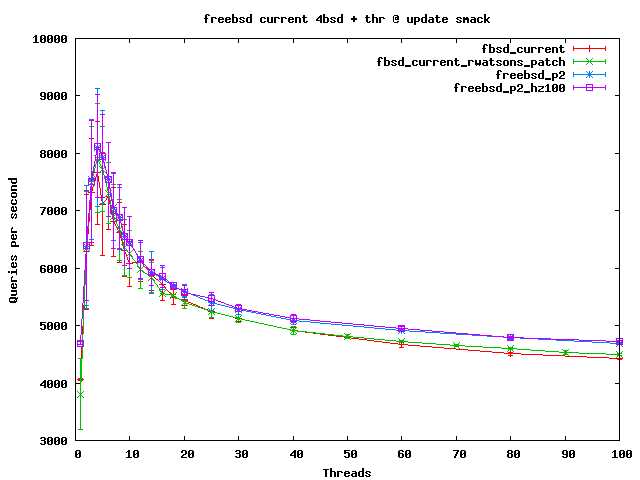
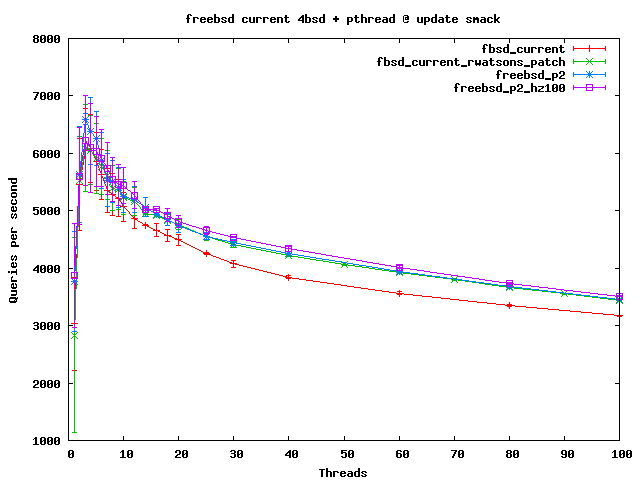
ULE scheduler
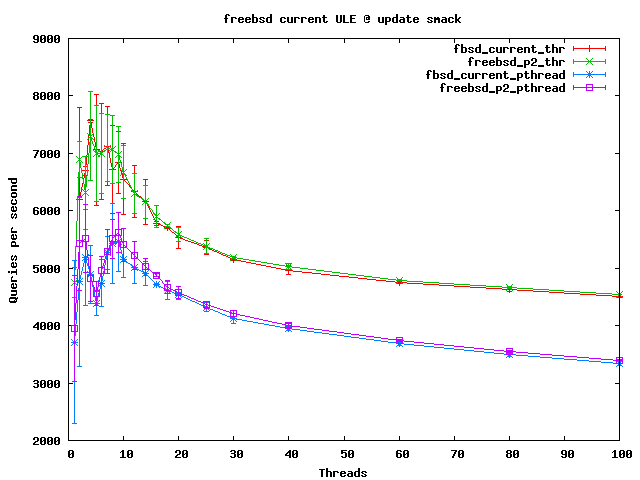
Linux vs. fbsd current
some information about linux 2.6.5 config available here
details about 2.6.15 config are here
fbsd had malloc debug enabled, which brings the performance down quite a bit.
